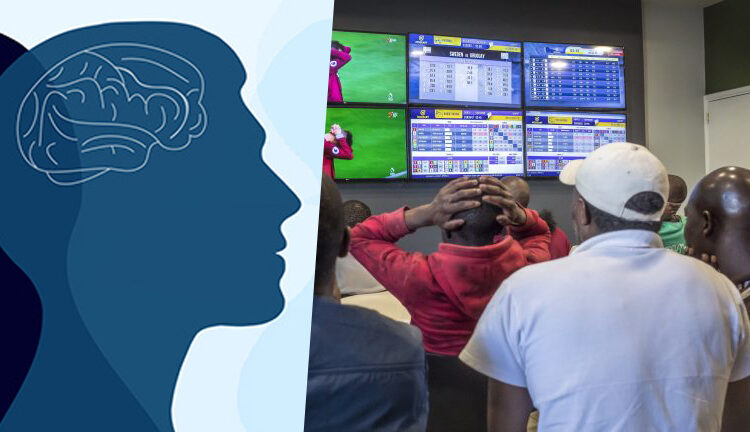Today we’ll be talking about the prevalence of sports betting in Nigeria, which is deeply ingrained in our society, as well as touch on the subjects of underage gambling and problem gambling. We’ll talk about it with probably the most qualified person that has a background in gambling but also in studying human emotions. Who better to talk about gambling-related issues than Edward Howarth of DashTickets.
Thank you for joining us, Edward. As we understand, you’re originally a psychologist who made a career in gambling. Is that correct?
That is correct more or less, yes, though I got a degree in social sciences and not psychology. It’s an interest in human nature regardless, and gambling has very much to do with human nature. I saw how players were getting manipulated during my years in a multinational gambling company.
Gambling in general is taking advantage of human nature, isn’t it?
Yes. We all have a desire to win, an ingrained inclination to hope for the best, and then on top of that, you have tons of gambler’s fallacies, and finally, the desire to win back the money, which results in chasing losses. Casinos use all that to get players to play more and lose more.
In Nigeria, gambling on games of chance isn’t as popular. How come? Are we immune to the usual human inclination to gamble?
You might just be. I view Nigerians as street-smart people who know how to survive, and putting your fate in the hands of a roulette wheel isn’t the best thing to do. Whereas we Westerners – though I’m actually east of you – need excitement in our lives, and gambling brings it, I suppose in Nigeria the ongoing fight to survive another day is exciting enough.
Do sports bettors count on winning more than casino players do?
Yes, and that’s what’s inherently bad about sports betting. You truly believe that you’re supposed to win. You placed a bet on Nigeria against Equatorial Guinea in that AFCON opening game, the price was 1.45, and you truly believe Nigeria must win. It turns out, the opponents didn’t want to let it happen so the match ended 1-1, probably busting all gambling tickets in Nigeria that day.
Is sports betting gambling?
It depends on who you ask. British people will call it gambling. In many countries, I suppose Nigeria belongs to this group too, gambling and betting are considered as two separate activities. When you gamble on a casino game, you’re truly gambling, you rely on lady luck alone. With sports betting, you can make an informed decision and back it up with your money. I wouldn’t call sports betting gambling.
Why do people consider it gambling then?
Because, even though you’re making an educated guess, sports betting still fits the description of a gambling activity. You can get addicted – I was at one point – and you can enter a problem gambling spiral in which you lie to your family, sell stuff, and so on.
So, you were addicted to sports betting. What did that look like?
I was chasing losses. I would win quite a bit, think it was easy, and then enter a long losing streak with increasingly higher stakes, to try to win back the money. I’ve lost quite a bit. Many times late goals rescued me in injury times, but also many times I got hurt by strange events such as Juventus not scoring. It’s a sport. That’s why it’s exciting. You can’t tame it and make it follow your reasoning and the bet you placed.
What were you betting on?
I had a crazy strategy of placing bets on a certain team to score a goal. It seemed the low-risk option as, for crying out loud, Arsenal must surely score at home against Aston Villa. But it turns out, they don’t, and due to the low odds of 1.05 to 1.10 for such a bet, you need a massive stake to win anything meaningful. And when you lose, you lose a lot.
How did you stop? Did you stop?
It was the toughest thing I’ve ever done. I needed my entire character and knowledge of psychology to tell myself that the only reasonable thing to do is never to place another bet again. Get another job, get a side gig, that’s safe money – in gambling, you can’t count on winning even one dollar.
Do you think problem gambling exists in Nigeria?
Contrary to what other people – who usually don’t have a background in sports betting but in social sciences – think, no, I don’t believe so problem gambling is very prevalent in Nigeria. People in Nigeria place bets because they must, win some money to survive. They’ll bet again tomorrow, and the day after tomorrow, and so on. But this isn’t necessarily a problem gambling behavior.
What about underage gambling?
Again, if we look at it from the Westerner’s point of view, then by all means, underage gambling is bad because children shouldn’t be allowed to gamble, their minds are too weak to handle this activity. But I understand that children in Nigeria mature more quickly and must adapt to the demands of adult life much more quickly.
Are there people who are in real harm from problem gambling?
Sure. Even, all things considered, problem gambling – problem sports betting – is still a thing in Nigeria. I’d say people who are desperate to win back the money they’ve lost are the most vulnerable group.
How would you address the problem? How would you help those people?
Well, in normal circumstances, I’d tell them to quit. But what these people really want is a winning pick. So, I say, talk to others, see how the winners play, learn from them.





